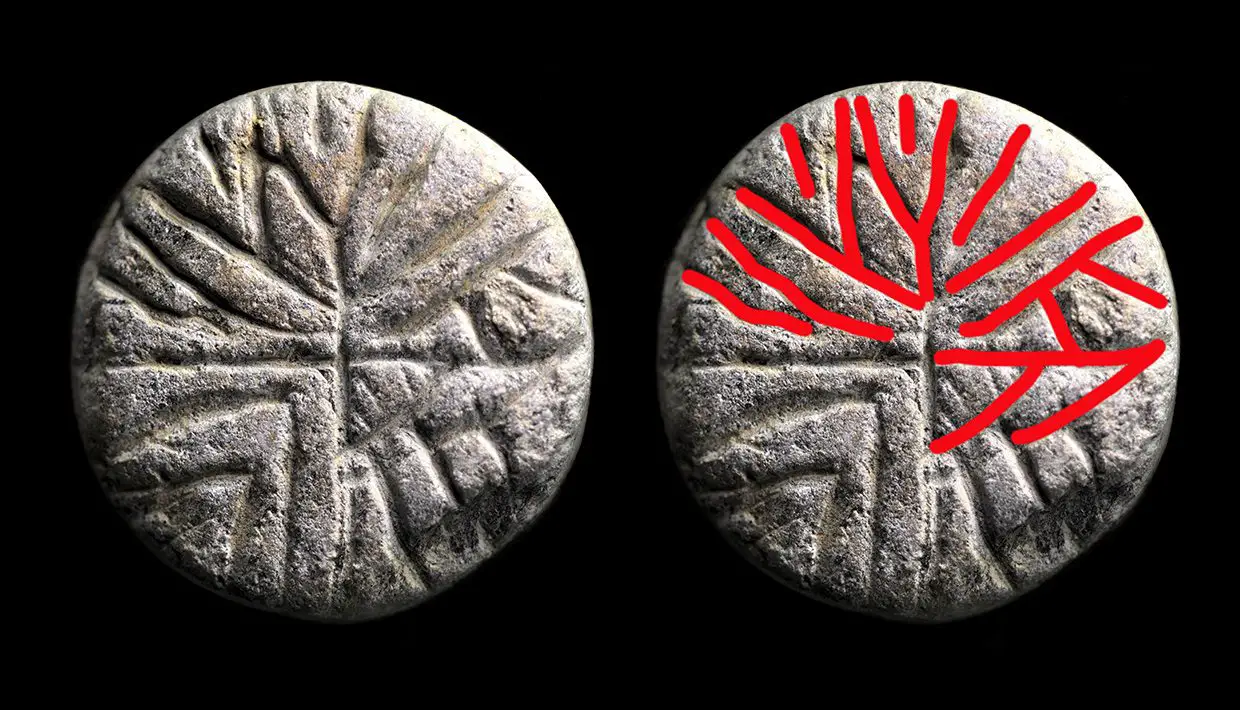Archaeologists conducting rescue excavations in Trondheim, Norway, have found a gaming piece with carved runic inscriptions.
The discovery was made in the city’s medieval centre where a trading post named Kaupangen was founded in AD 997 by the Viking King, Olav Tryggvason. The settlement emerged into the capital of Norway and the king’s seat, remaining an important Norse centre until it was overshadowed by Ánslo (Oslo).
The team were excavating in preparation for repairs on a sewer pipe that was dug into the early context layers, revealing the gaming piece among several other discoveries,
In the uppermost layers they found partially preserved planks and evidence of 11th to 12th century AD pits dug to a depth of 3.8 metres. In one of the pits they discovered a gaming piece made of soapstone, a high-purity talc rock commonly used by the Vikings for making everyday objects.
High-resolution images of the gaming piece were sent to runologist, Karen Langsholt Holmqvist, who confirmed that the uneven geometric pattern carvings were actually runes. The runes follow the shape of the gaming piece and has been translated to say “siggifr”.
The “Sig” is possibly a hypocorism for a common Norse name such as Sigurd, Sigbjørn, Sigfrid and Sigrid. When the name ends with an “r”, it is assumed that it refers to a male name. The word “sifr” is a heiti, a synonym used in Old Norse poetry in place of the normal word for something.
Dag-Øyvind Engtrø Solem, an archaeologist at the Norwegian Institute for Cultural Heritage Research, said: “I only know of one other playing piece with runes (in the country) that was found at Bryggen in Bergen. The interesting thing is that it is also uncertain whether the inscription (“Viking”, which was a common name in the Middle Ages) refers to the person who owned the object, the person who made the inscription, or whether it was the nickname of the playing piece.”
Header Image Credit : Dag-Øyvind Engtrø Solem





